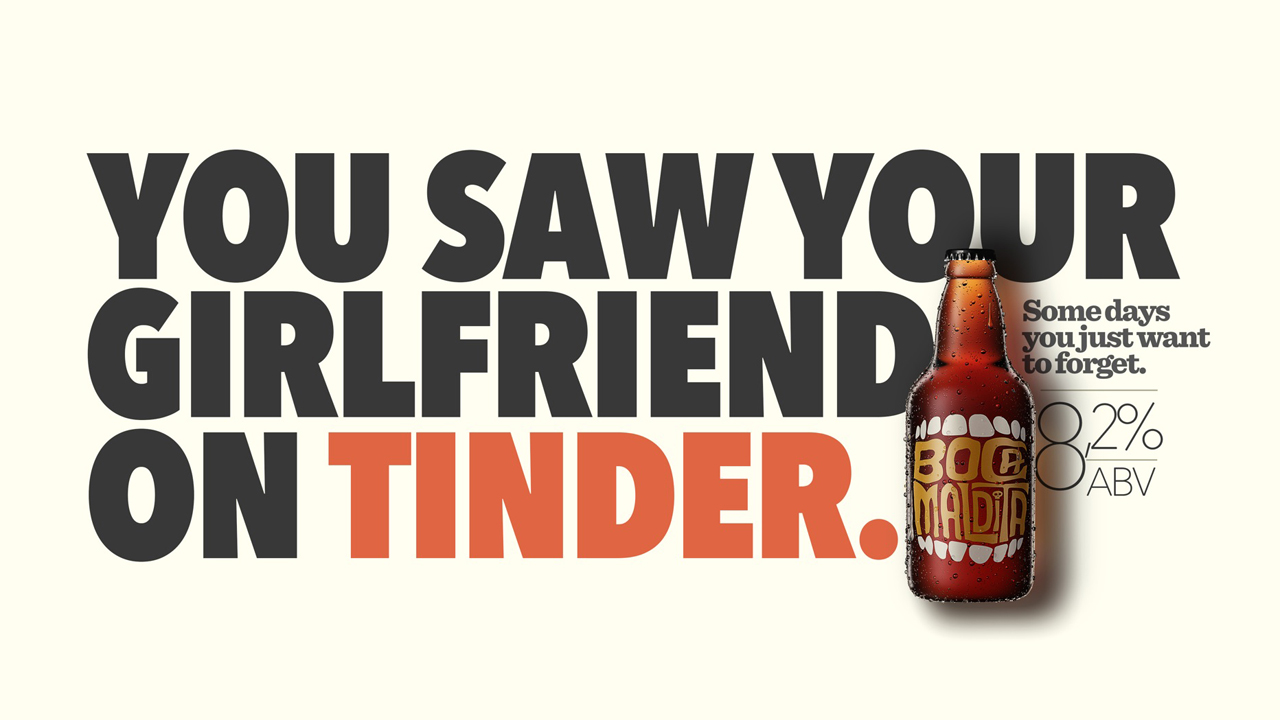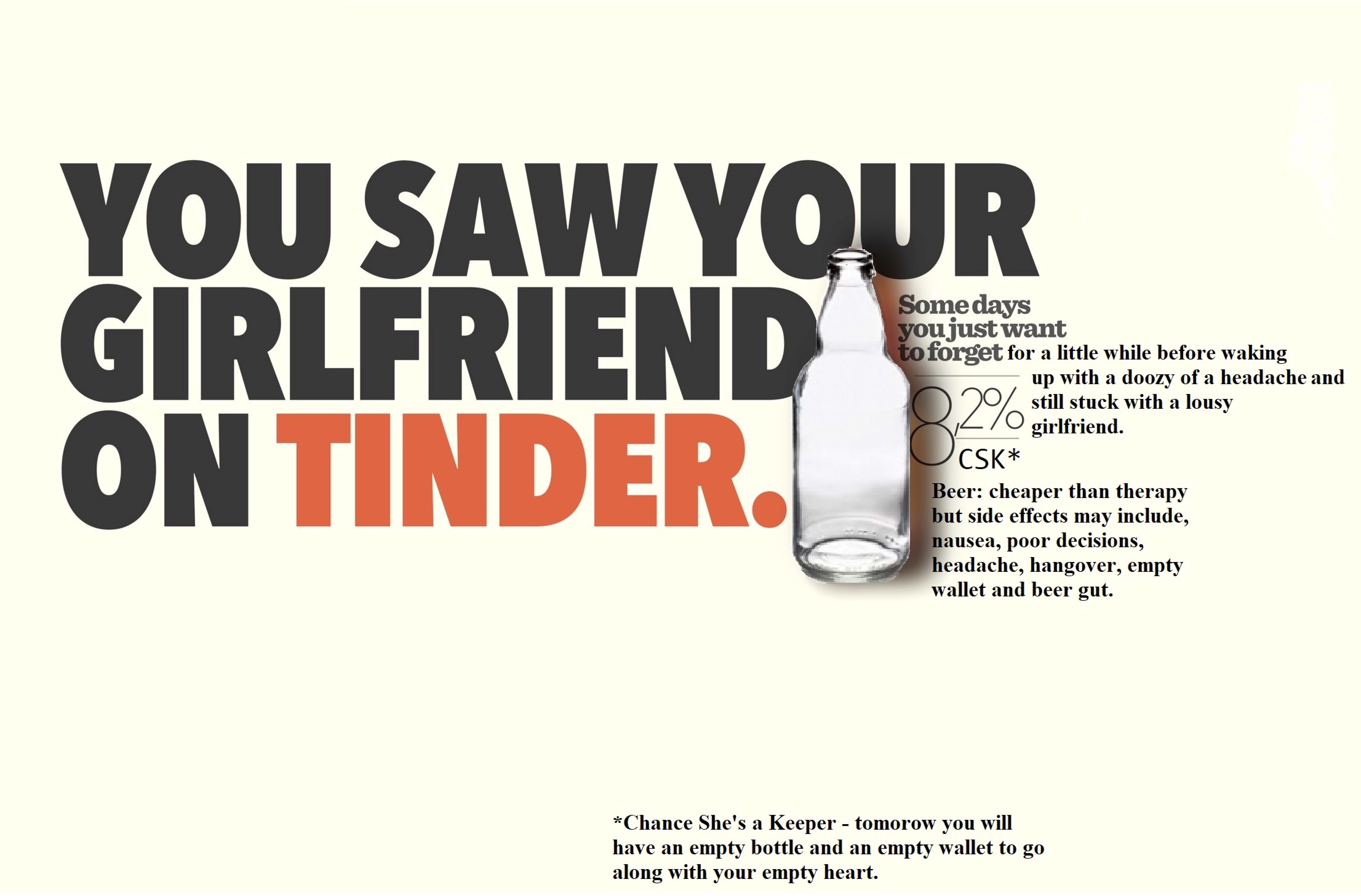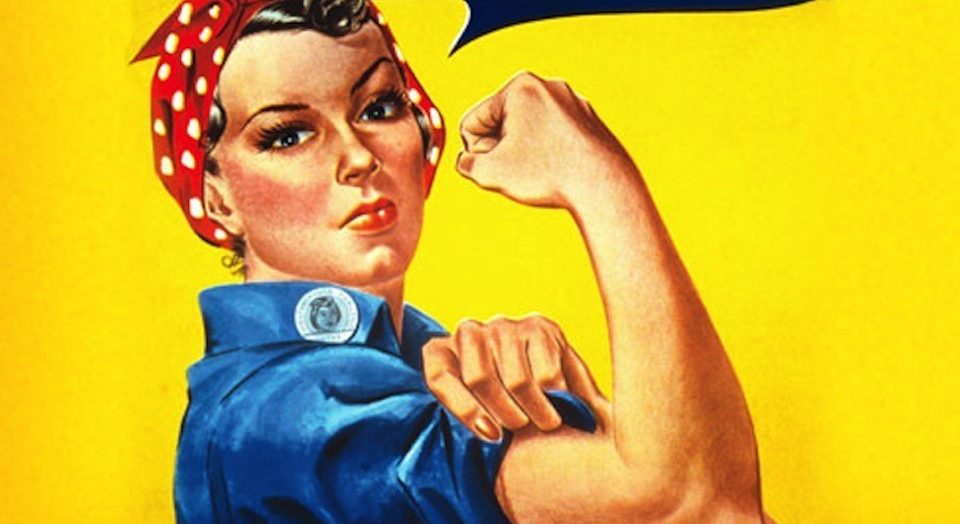
This advertisement is promoting Boca Maldita beer and a lifestyle that expects one to need to forget his/her troubles. It is selling an idea along with the beer.
Using humour, the ad implies alcohol, specifically Boca Maldita, will help you forget your problems. While the ad, itself, is humourous, reality is that many people drink for just this reason, to forget or run from their troubles. It implies drinking will help you forget your problems and that is supposedly a desired outcome. A more thoughtful approach would be to discuss the tinder situation with your girlfriend and then take steps to work on strengthening your relationship or move on to find someone more faithful. That is both a mouthful and lot more difficult. It also will not sell beer.
The ad fails to mention the temporary nature of drinking to forget your problems while also forgetting the more permanent solution of facing your problems head on and solving them. Key issues the ad overlooks, aside from the temporary solution of drinking to forget, is the reality of extra calories, finding a safe ride home, impaired judgement, alcohol poisoning, the expense, vomiting, and the hang over that will be present (along with the problem), after you sober up. Also missing from this ad is any thought to the notion that repeated drinking to forget stress and problems can lead to alcoholism. However, if one’s only coping mechanism is drinking, then perhaps one might understand why the girlfriend is on tinder, she is probably looking for an upgrade.
While the ad can be aimed at anyone with a girlfriend, it is likely aimed at young men. Tinder is used primarily by young, hetero sexual people, presumably who are not in committed relationships. The ad is probably aimed at legal aged drinkers but could easily be viewed by under aged drinkers, especially in places like the US where the legal drinking age is twenty-one. Many under aged people would be using tinder. While primarily targeting drinkers, the ad can also be aimed at those who do not yet drink beer but might need to forget their troubles.
The ad uses the elements of colour and space effectively. Colouring the word Tinder while the rest of the words are black uses the principle emphasis. Emphasis is also used by placing the bottle at the end of the sentence. The eye follows the words then lands on the bottle. Having the text and image all centered on the paper is an effective use of balance, another principle of design.

The jammed ad points out that, while alcohol will help you forget, the sensation is only temporary. The problems will return when you sober up and along with them you will have the added problem of headaches, etc. You will also have spent a lot of money because one beer is not going to help you forget anything. The bottle is empty, representing your empty wallet from spending so much money on beer.
Alcohol, itself, used responsibly, is not dangerous or hazardous. One beer, or scotch or martini, if consumed because one enjoys the taste, is similar to eating one piece of cheesecake because one enjoys the taste. The problem with alcohol is highlighted in the original ad. More an more, the prevailing philosophy is that consuming alcohol is seen as an acceptable way to cope with stress, forget troubles, get though a tough situation, find courage to perform a task like ask a woman out, etc. When used in these ways, as is often the case, alcohol is dangerous.
While one drink is not harmful, several can lead to alcohol poisoning and prolonged use can cause liver failure and a whole host of other health problems. While these are rare and many people avoid these health concerns, alcohol, used in the way it is suggested in this ad, is dangerous. It becomes a form of self medication. Ideally, people learn to handle stress, disappointment and painful memories through discussion, therapy, or some other healthy outlet like breathing exercises or jogging. People might want to look for self esteem or confidence to ask a girl out or go bungee jumping or whatever else they may need liquid courage to do. Perhaps, if one needs to consume alcohol to do something, they either don’t want to do it that badly or it is a bad idea in the first place. Essentially, this ad, and the rest in the series as well as many others, recommends that people self medicate against fear, depression anxiety, lack of confidence and many other situations by drinking. This is dangerous because it opens up the possibility for true depression or other mental illness to go undiagnosed and/or untreated by proper medical professionals. The jammed ad attempts to point out the flaw in drinking to forget.
